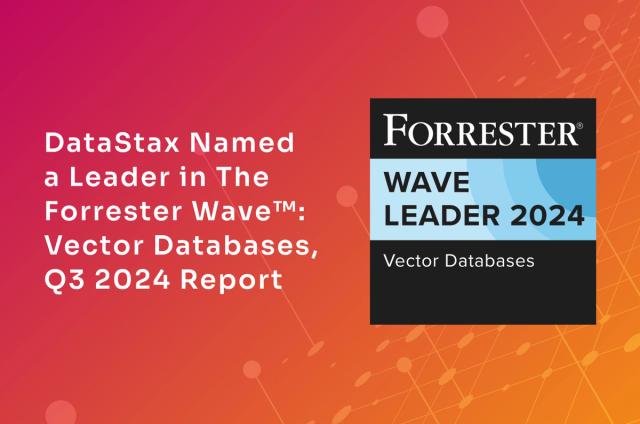Five Freedoms of Enterprise Data

Enterprises are not moving fast enough to keep up with transformational new realities:
- The move to the cloud is inevitable and urgent,
- Traditional approaches to data don’t scale for the Right-Now Economy, which applies to both B2C and B2B expectations,
- Consumer protection regulations add tremendous business complexity, and
- Tech titans increasingly control the vast majority of cloud resources and pose competitive concerns in almost every industry.
Everywhere we look in the world of tech, a cloud message is looking back at us. Cloud applications, marketing clouds, service clouds, CRM clouds, cloud computing. Not since the early days of the web has any message become so pervasive so fast. And just as with that shift a few decades ago, so too is this one long-term, all-encompassing, and transformative (or in the language of Silicon Valley, disruptive). Customers in both B2B and consumer contexts have radically different (perhaps extreme) expectations--and those expectations for customization, personalization, intelligence, speed, and agility continue to accelerate as cloud capabilities propel functionality and response times further and faster.
But while everyone talks about how cloud capabilities impact customer experience or enterprise optimization, most make one of two critical errors when deciding on the data layer that underpins everything in the cloud. Either, they think that a cloud application can rely simply on the databases and data approaches of yesteryear; or that a shiny new cloud message with a dizzying array of “as-a-service” a la carte options will somehow magically solve the complex and myriad database requirements that ultimately define cloud success. Both of those false assumptions will end in failure. The cloud requires new approaches to data--plain and simple.
Concurrently, while the cloud is injecting infrastructure stress into enterprises around the world, consumer regulations are adding an additional element of complexity. The recent enactment of GDPR is a tangible example. If you’ve received a barrage of privacy messages in the last two months from all your apps and companies with whom you’ve done business (even if for only one flower order for a Mother’s Day a few years ago), you have experienced firsthand the impact of GDPR on you as a citizen and consumer.
Finally, the rise of tech titans as cloud giants poses a further challenge (or at least warrants a moment of contemplation) for every other enterprise that must rely on the public cloud to stay competitive. Retailers, financial services firms, hospitality conglomerates, automotive manufacturers, and even IT consultancies--in fact, every industry in every part of the world--is moving rapidly to the cloud and often on the platform of a competitor or potential competitor. “Caveat emptor” takes on a whole new meaning in a world where what you buy could fuel your demise.
At DataStax, we believe this calls for a new paradigm against which enterprises must implement their data infrastructures. This paradigm demands rethinking every part of how applications are designed and built on a new data infrastructure. Perhaps most important of all, data policy decisions made today certainly affect current implementations and will also have high impact on the long-term viability of global enterprises.
To help navigate these difficult but imperative decisions, we submit the Five Freedoms of Enterprise Data as guiding principles. We believe these Five Freedoms of Enterprise Data are critical to: maintain healthy competition across and within industries, accelerate the benefits of the cloud while mitigating its potential for monopolistic or oligarchist harm, and protect consumer interests with the choices and innovations that only come when many companies offer products and services in a dynamic economy.
Our enterprise customers tell us they are looking for their data investments to provide the biggest outcomes in the fastest time and with the least risk. We believe these Five Freedoms of Enterprise Data are critical to making that happen.
Here are the Five Freedoms of Enterprise Data we propose:
- The Freedom of Agility: Now and in the Future. Agility really means adaptability. Enterprises should freely control their application stack whether on-prem, in hybrid clouds, or even across multiple clouds. Doing so allows enterprises to take advantage of each cloud’s best-of-breed offerings, such as new AI and machine learning features. This ultimately reduces management complexity and risk along the way. Additionally, such approaches and investments give enterprises a “future-proof” approach for their tech infrastructure, extending the life of legacy applications while exploiting new technologies as they emerge.
- The Freedom from Lock-In. Enterprises should be able to find the best cloud and database partners for a variety of needs and as markets and competitive dynamics change. No enterprise should be locked into the cloud or database infrastructure of a technology company who no longer meets their business needs.
- The Freedom of Right-Now Data Access. Applications need to run everywhere at lightning speed. While using hybrid and multiple clouds has many advantages, disparate databases within those clouds is not one of them. Doing so creates all the same data silo problems of the past, but makes them worse due to potentially high data transfer costs. Enterprises should expect that however they have deployed their data, applications can consistently and quickly leverage that data to deliver actionable insights across any underlying infrastructure, whether that be on-prem, hybrid, or multi-cloud in nature.
- The Freedom of Protection through Industry Best Practices on Security. Enterprises should expect their data will be protected with the best available security from cloud providers and the database companies with which they work. Enterprises should expect pro-active vendor notification of any suspected data breach. Additionally, enterprises should expect their cloud and database providers to participate in industry security bodies such as the Cybersecurity Tech Accord.
- The Freedom from Harmful Government Regulations, including inconsistent global regulations and data localization requirements. Enterprises should expect as much consistency as possible across government regulations of consumer data and pertaining to consumer privacy. Disparate regulations among the world’s large economies will become a regulatory nightmare that will stifle innovation, harm companies who do not have the scale or resources to meet myriad regulations, and ultimately harm the very consumers such regulations are designed to protect. Similarly, enterprises know where best to store their data to meet their customers’ needs and protect their customers’ (and their own) data. Governments should NOT mandate localization requirements and enterprises should resist localization requirements.
See how DSE6 and DataStax can help you with these freedoms. We welcome feedback and additional ideas. Please share your thoughts with us below.




